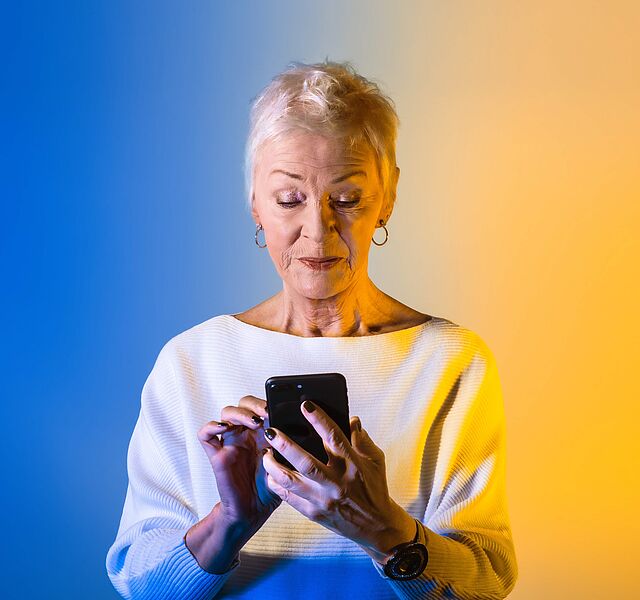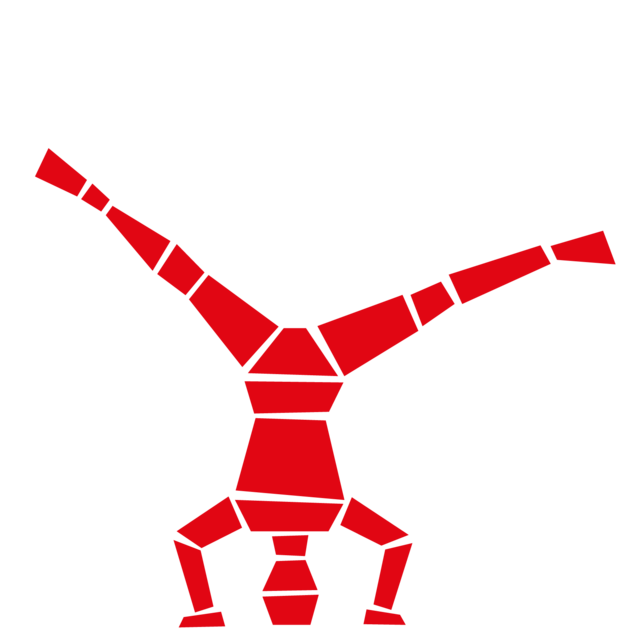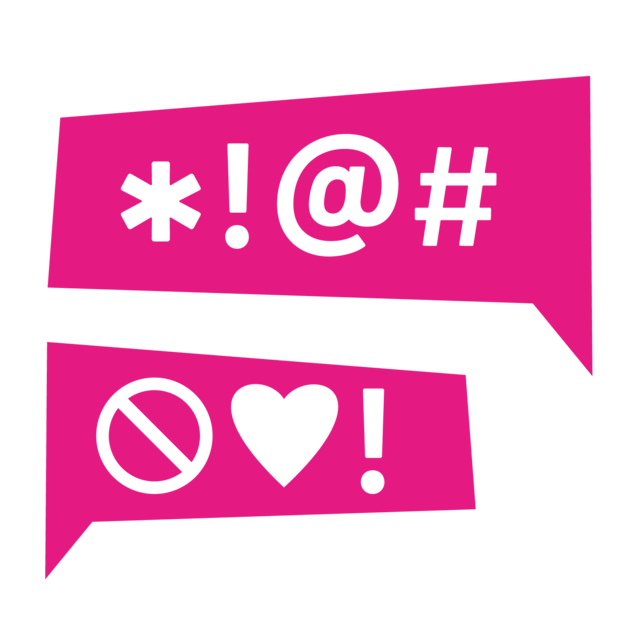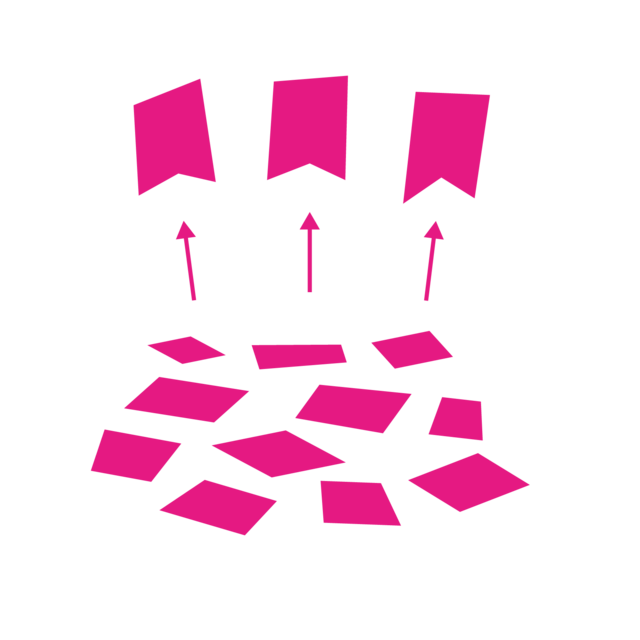Login
What actually is social media?
- Here's how you can take part
Article content at a glance
Social media are online platforms for communication, sharing content and entertainment.
Well-known platforms such as Instagram, TikTok and Facebook have opportunities, but also risks such as data protection issues, bullying and disinformation.
In addition to these, there are also alternative networks such as Fediverse, which focuses on data protection and decentralization.
Digital skills, data protection awareness and a critical approach to content are important for safe use.
There are many ways to get in touch with other people via the internet, to share information and to be entertained. One possibility that combines all these types of exchange is called "social media". But what exactly does it mean? How does it work? In this text, we want to explain social media in a simple and understandable way.
What does social media mean and what can I do on these platforms?

Social media is a collective term for websites and apps that enable people to communicate with each other, share images and videos or simply exchange their thoughts and opinions. In short, they are online platforms for social communication. Sometimes the term "social networks" is also used and this is not entirely wrong, because wherever people come together to exchange ideas, whether analog or digital, socially networked groups are automatically formed. However, if we are explicitly referring to websites and apps on which groups exchange information digitally via the internet, then the terms "social media" or "social media" are more appropriate.
Social media is comparable to a marketplace where people meet, chat and exchange information or simply sit on the sidelines and watch the action. There are market criers selling products and celebrities seeking proximity to their fans or entertaining the public. Friends or families use the market as a shared activity, others are looking for something specific or are there on business. However, social media platforms are much larger than local marketplaces. With a smartphone, tablet or computer, you can take part in these events, get to know people who don't live in your city, share photos and videos and keep in touch with friends and family. You don't have to use all of these features; it's up to you what you use social media for.
Your first steps on social media
1. do you have a suitable device?
To take part, you need a smartphone, tablet or computer and an internet connection. To register on a social media platform, you need access data, usually an email address and a secure password.
Don't have an email address yet? It's quick to set up and many people already have one, so someone will be able to help you. You can find out how to set up an email address yourself here.
2. create your profile!
After registering, you create your own profile, i.e. a profile about yourself. Do not share any sensitive information and make sure that your details are only visible to friends - you can usually select this in the privacy settings. You can then search for "friends" and people you already know and add them so that they can see your posts and communicate with you. People who follow your posts are called "followers".
3. become part of the community!
Start by observing what others are doing and which posts they share. Once you have a feel for this, you can create your own photos, videos or texts. Always be mindful of your privacy and the privacy of others. For example, you are not allowed to share photos of other people unless you have asked them for permission first. Every person has the right to decide for themselves which photos and information about them are published. Also, never share photos in which children can be seen in order to protect them from abuse.
The most popular social media and their pitfalls
The focus is on sharing photos and creative videos, known as "reels". Another striking feature is "Stories", where images and videos are visible 24 hours a day and offer spontaneous insights into everyday life. Instagram focuses on aesthetics and self-staging, which creates many trends, especially among young people. One challenge is that users are often confronted with "more appearance than reality", which can distort their self-image and reinforce stereotypical role models. Those who use the platform very actively to share content and provide private insights run the risk of losing their own privacy and also make themselves vulnerable to hostility. There are also many entrepreneurs on the platform who disguise advertising as practical tips, thereby influencing interests and purchasing behavior unnoticed. People who exert influence on users are called "influencers". Those who have many followers (interested observers) therefore bear a great deal of responsibility for the content they share and can also abuse this power.

TikTok
TikTok is a platform for short, creative videos of 15 to 60 seconds. Users can make their videos more appealing with music and effects. The focus is on music and dance, but also on "challenges" in which users film themselves and complete creative, sometimes quite crazy tasks. The aim is often to get more clicks and attention than others. However, these challenges can be dangerous, especially if they involve life-threatening tests of courage. The many viewers act as an incentive, which can blur the boundaries between fun activities and risky actions. Insults, bullying and hateful comments are also common under the videos, as the huge amounts of content cannot be sufficiently checked by the platform's moderators.

Facebook is one of the oldest and largest platforms for keeping in touch with friends and family and sharing common interests in groups. The focus is on sharing texts, photos and videos. Users mainly create posts that show their thoughts or experiences. Important functions are the "groups", in which people with similar interests share information and point out events, which is particularly valuable for hobby groups. However, this can become dangerous when groups come together around political, religious or ideological content. The dynamics in such groups can reinforce extreme attitudes and lead to radicalization. Furthermore, communication on Facebook is not well moderated, which means that there is plenty of room for hatred and hostility.

X (formerly Twitter)
The platform specializes in short messages that are limited to 280 characters, which corresponds to around two to three short sentences (called "microblogging"). The focus is on the quick and concise dissemination of information, especially on current topics and opinions. This is why many people use the platform to obtain information. A particular challenge on X is that the platform belongs to Elon Musk, a very rich person with a lot of influence who openly shares right-wing extremist ideas. Under the guise of freedom of expression, the harsh communication on X is steered by algorithms in such a way that heated discussions are deliberately created. The lack of content moderation further encourages the sharp tone. As a result, false information, hatred and hostility spread very quickly.

YouTube
This is a video platform for viewing and uploading content. Music, entertainment and explanatory videos (tutorials) on many different topics - from cooking recipes and travel reports to fitness exercises - are particularly popular. The "Let's play" category, in which players share their experiences and tips on video games, is very popular with young people. However, the large number of videos also means that there is a lot of fake news and misleading content circulating. Communication mainly takes place via the comment function, which can lead to heated discussions on political topics. Hidden sponsorship and the influence of influencers also play a major role here.

On Pinterest, users can collect and share images and ideas on various topics, similar to "pins" on a pinboard. Popular topics include recipes, gardening ideas, travel destinations, art and crafts (especially instructions for creative ideas to make yourself). The platform serves more as a source of inspiration and less for personal communication. As with Instagram, the focus is on aesthetics, which can create pressure and unrealistic expectations of one's own abilities. In addition, not all content is trustworthy and could infringe copyright, as it is often unclear whether users are sharing their own photos or using images from other sites. There is also a lot of advertising content (ads that lead to external websites) mixed in with posts that are not immediately recognizable as such.
Less known social media platforms
Facebook and Instagram belong to the company "Meta", which uses an enormous database for analysis and can control the communication of millions of people. A lot of data is also collected on X, which gives the operator great power over communication. YouTube belongs to Alphabet, which also owns Google. All known social media are part of huge data machineries.
An interesting alternative that collects only a small amount of data and is not centrally controlled is an amalgamation of many different social media: the so-called "Fediverse". The best-known platforms in the Fediverse are
- Mastodon, for microblogging similar to X,
- Pixelfed, focused on photos like Instagram,
- Friendica, as an alternative to Facebook,
- and PeerTube, as an alternative to YouTube.
What makes it special: Users choose from hundreds of providers (instances) where they want to create their account, but can communicate with all other users, even across platforms. For example, someone with a Mastodon account can also interact with posts on Pixelfed and, for example, comment on images without having to create an additional Pixelfed account. Each instance has its own rules and moderators for the content, which makes it easier to curb unconstructive hate messages. There is hardly any advertising in Fediverse (one of the top rules on many instances) and since user data is not all stored with a single provider, no one has the power to control all communication through algorithms.
Strengthen your digital skills for the safe use of social media
Social media is a great way to stay in touch, learn new things and chat - from the comfort of your own home. With a little practice, using it becomes a habit. However, you must never lose sight of the dangers.
Practice using smartphones and tablets to develop a feel for operating digital devices.
Learn how to deal with harmful content, e.g. offensive or hateful posts.
Find out more here about online radicalization and how to prevent it.
Learn how to expose fake accounts and scams. You can read about this here.
Find out about the influence of algorithms on the dissemination of content and opinions. Here you can find information on algorithms.
Familiarize yourself with disinformation and recognize deliberately spread fake news. Learn more in our test.
Think about what personal information you should not publish.
Sources
Articles on various social networks: https://www.klicksafe.de/soziale-netzwerke#r-page
Fediverse: www.fczb.de/schnellerklaert-fediverse/
How Musk pushes his interests on X: https://www.bdzv.de/service/presse/branchennachrichten/2024/meinungsmacht-per-algorithmus-wie-musk-seine-interessen-auf-x-pusht
